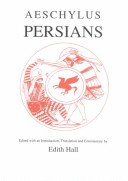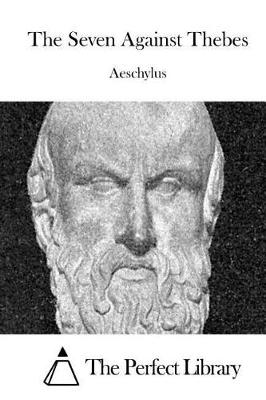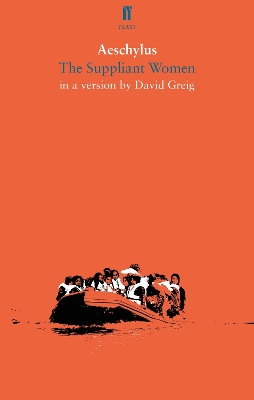Greek Tragedy in New Translations
5 total works
For readers accustomed to the relatively undramatic standard translations of Prometheus Bound, this version by James Scully, a poet and winner of the Lamont Poetry Prize, and C. John Herington, one of the world's foremost Aeschylean scholars, will come as a revelation. Scully and Herington accentuate the play's true power, drama, and relevance to modern times. Aeschylus originally wrote Prometheus Bound as part of a tragic trilogy, and this
translation is unique in including the extant fragments of the companion plays.
translation is unique in including the extant fragments of the companion plays.
The Persians, Aeschylus' earliest surviving tragedy, holds a fascination both for readers of Greek drama and Greek history. Not only is it the earliest existing play in the Western tradition, it is drawn directly from the playwright's own experiences at the battle of Salamis, making it the only account of the Persian Wars composed by an eyewitness. And as pure tragedy, it is a masterpiece. Aeschylus tells the story of the war from the Persian point of
view, and his pride in the great victory of Greeks is tempered with a real compassion for Xerxes and his vanquished nation. Lembke and Harrington have rendered this stunning work in a modern translation that loses none of the original's dramatic juxtaposition of serenity and violence, hope and
despair.
view, and his pride in the great victory of Greeks is tempered with a real compassion for Xerxes and his vanquished nation. Lembke and Harrington have rendered this stunning work in a modern translation that loses none of the original's dramatic juxtaposition of serenity and violence, hope and
despair.
Though the Septem has been the focus of much scholarly attention in recent decades, this powerful drama remains difficult for modern readers and presents great problems of text and interpretation. The text of this major edition differs substantially from other current versions and the commentary draws on literature, art, and inscriptions to illuminate the work and its details by placing them in the context of Greek culture and society, and by showing how conventions are used, modified and distorted. Particular attention is given to style and language, to dramatic and literary structures and forms, and to the exploitation of religion and ritual.
The great trilogy that is the wellspring of Western drama.
If we help, we invite trouble. If we don't, we bring shame.
Fifty women board a boat in North Africa. They flee across the Mediterranean, leaving everything behind. They are escaping forced marriage in their home and seeking asylum in Greece.
Written 2,500 years ago, The Suppliant Women is one of the world's oldest plays. It's about the plight of refugees, about moral and human rights, civil war, democracy and ultimately the triumph of love. It tells a story that echoes down the ages to find striking and poignant resonance today.
Featuring in performance a chorus of local women, this is part play, part ritual, part theatrical archaeology. It explores fundamental questions of humanity: who are we, where do we belong and, if all goes wrong, who will take us in?
Aeschylus' The Suppliant Women, in a version by David Greig, premiered at the Lyceum Theatre, Edinburgh, in October 2016, in a production by ATC.
Fifty women board a boat in North Africa. They flee across the Mediterranean, leaving everything behind. They are escaping forced marriage in their home and seeking asylum in Greece.
Written 2,500 years ago, The Suppliant Women is one of the world's oldest plays. It's about the plight of refugees, about moral and human rights, civil war, democracy and ultimately the triumph of love. It tells a story that echoes down the ages to find striking and poignant resonance today.
Featuring in performance a chorus of local women, this is part play, part ritual, part theatrical archaeology. It explores fundamental questions of humanity: who are we, where do we belong and, if all goes wrong, who will take us in?
Aeschylus' The Suppliant Women, in a version by David Greig, premiered at the Lyceum Theatre, Edinburgh, in October 2016, in a production by ATC.



